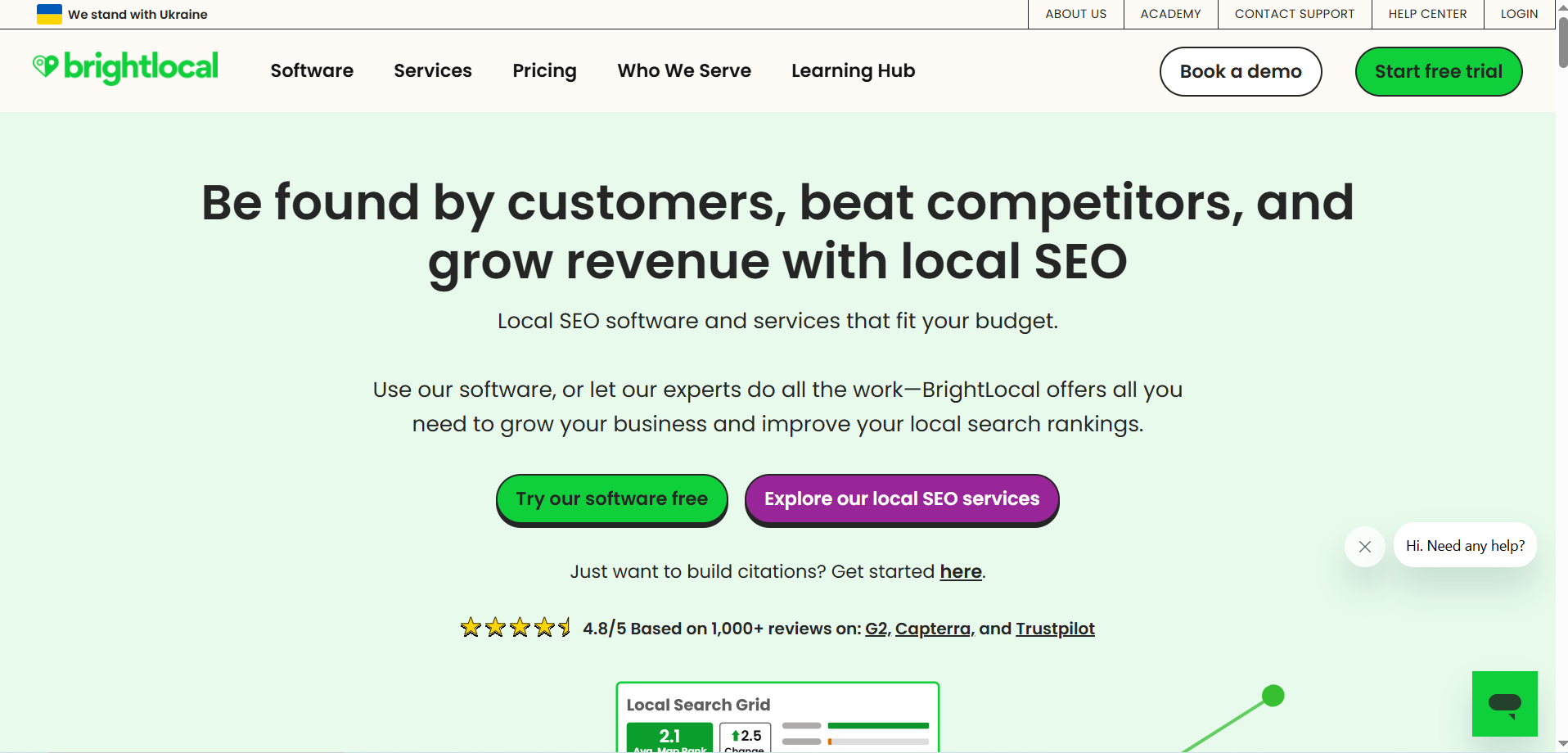
13 Ecommerce SEO Link Building Strategies & Solutions for SMBs
[Updated on April 14, 2025] Are your ecommerce link-building tactics still working? Ecommerce SEO link building ensures quality backlinks, higher rankings, and more organic traffic.
This article covers the top ecommerce SEO link-building strategies in ecommerce.
Key Takeaways
- 13 proven strategies that combine traditional techniques with AI approaches.
- 6 benefits of using ecommerce SEO link building for ecommerce stores.
- Insights into why ecommerce link building matters for your backlink profile.
- 7 types of links used in ecommerce SEO link building for ecommerce product pages.
- The role of ecommerce SEO link-building strategies in ecommerce ranking.
- 11 tools to find link-building opportunities for ecommerce brands.
- 5 common ecommerce link-building mistakes to avoid.
What is SEO Link Building in Ecommerce?
SEO link building in ecommerce helps you get high-quality links. The links are from other websites to improve ecommerce search rankings.
SEO link building in ecommerce helps bring more traffic. To get links to your ecommerce site, you must create content others find valuable. Users can also reach out to site owners and ask them to link back to the ecommerce site. There are several link-building tactics for ecommerce, such as:
- Broken link building
- Guest blogging
- Internal linking
- AI-driven outreach
- Digital PR campaigns
6 Benefits of Using Ecommerce SEO Link Building
1. Boost Google Rankings
Link building helps improve Google rankings by gaining quality links from trusted sites. Google uses the links as signals of authority. It allows users of ecommerce sites to rank higher in search results. More links pointing to the site give search engines a more authoritative appearance. Higher rankings bring more visibility. It means more visitors to the ecommerce website.
2. Drive More Organic Traffic
Organic traffic refers to visitors who find the site through unpaid search results. More visibility means more clicks. This effectiveness results in more organic traffic to your ecommerce store.
Data shows that 53% of users abandon sites with more than 3 seconds load times. Thus, it allows businesses to ensure that linked pages load.
3. Improve Page and Domain Authority
Page and domain authority are key factors in determining a site's ranking. Link building helps improve both by gaining quality links from trusted sources. The more authoritative websites link to a website, the higher the score will be. Higher authority makes the website more trustworthy in search engines. So, use a DA PA checker to assess the domain and page authority of the referring webpage.
Google's EEAT metrics impact site rankings, making quality backlinks more necessary than ever.
4. Increase Sales and Revenue
More quality links lead to higher search rankings and more traffic. As traffic increases, so do your sales and revenue opportunities. With more visitors to your site, you have a higher chance of converting them into customers. Higher traffic can open up new revenue streams like:
- Affiliate programs
- Sponsorships
- Partnerships
Proper link-building creates a growth cycle and brings more visitors to increase sales.
5. Boost Brand Visibility
Every new link a user gains from another website exposes their brand to a new audience. Link building helps reach different online communities that might not have been available. The more visible the brand becomes, the more people discover products and services. It increases exposure and can lead to more traffic and higher engagement. It also ensures long-term growth for the ecommerce business.
Brand mentions impact authority in Google's search algorithm. Thus, entity recognition is a key factor in SEO success.
6. Improve Conversion Rate
When a trusted website links to your site, it introduces the brand to a loyal and engaged audience. Visitors who arrive through the links are more likely to trust the brand. The audience trusts the referring site, which can increase the conversion rates. Effective link-building helps attract high-quality traffic that can boost sales and revenue.
Local SEO-integrated campaigns yield 40% higher conversion rates compared to generic strategies. This data makes geo-targeted link-building valuable by turning visitors into buyers.
7 Types of Links Used in Modern Ecommerce Websites
1. Backlinks
Backlinks are set up when another website links to your website. The more backlinks you get, the more Google views your site as relevant and interactive. But not all backlinks are the same. Focus on links from top-ranking pages pertinent to your product for the best results. For example, a tech blog can review your product and link it to the product page.
2. Natural Links
Natural links happen when other websites link to your content without you asking. These links show that the content is useful and worth sharing. They also mean your site has a strong online presence because other sites like to link to it. For example, a food blog can link to your recipe guide in their article without you asking. The natural link boosts traffic and search engine trust.
3. Obtained Links
Obtained links need you to reach out and ask for a link from webmasters or bloggers. The method is common in ecommerce link-building strategies. The sites you target should be relevant to the product. Unrelated links will not add much value.
For example, you can contact a fashion blog to ask them to review your clothing line and offer to send them samples. After the review, the blog would include a link to the product page. This process will increase the e-commerce store's traffic and visibility.
4. Self-Created Links
The website owner makes self-created links to boost their site's SEO. The links are set up in forums or blog posts, resulting in poor linking practices. Self-created links are a way to trick search engines into making the content more valuable than it is.
For example, a user can add links to their website in blog comments or low-quality directories. It will generate some traffic that search engines will not penalize.
5. Resource Links
Resource links happen when other websites request a link to your valuable content. Examples include guides and infographics. The links from referring domains build authority and improve the site's SEO.
For example, a business blog can link to your SEO guide as a resource for its readers. The link will increase the authority of the blog and bring steady traffic.
6. Contextual Links
Contextual links are available within the content of a page. These links are more effective and relevant to the reader than sidebar or footer links. Contextual links also help improve the site's relevance in search engines.
For example, a wellness blog can write about fitness gear. It can then link to the yoga mat product page within the content. The contextual link drives engaged traffic and boosts SEO.
7. Curated Marketplace Links
A newer link type appears when your products get featured in niche directories like:
- "Ethical Fashion Directory"
- Specialized marketplaces
13 Strategies for Effective Link Building for Ecommerce
1. Reverse B2B Outreach
Reverse B2B outreach is a core part of ecommerce link-building strategies. Users connect with businesses in the industry to get a link. The goal is to create content that others want to link back to the website. The approach brings links from high-quality, relevant sites.
For example, digital marketing agencies like Loganix and Novo Marketing used reverse B2B outreach. It helped them build relationships and gain backlinks, which boosted their rankings.
2. High-Quality Images and Visuals
Visual content attracts links to your ecommerce website. You can:
- Create infographics, charts, and videos that others will share.
- Use a link-building tool to track who is pointing to your site.
- Optimize images for blogs and social media.
- Add relevant keywords to titles and alt text for the e-commerce website.
For example, IKEA used infographics in a buying guide. It helped them earn backlinks to their pages from other sites.
3. Influencer and Blogger Collaboration
Partnering with influencers and bloggers is a top ecommerce link-building tactic. Influencers can link to your ecommerce website in reviews, posts, or mentions. Offering products in exchange for reviews can generate valuable backlinks. This approach helps enterprises build long-term relationships for consistent traffic and links.
For example, Blueland's eco-conscious cleaning products worked with sustainability micro-influencers. It helped them receive backlinks through sponsored content.
4. User-Generated Content
User-generated content (UGC), such as customer photos, helps earn backlinks. SMBs can encourage customers to share their content and link to their websites. They can reshare their posts on social channels, keeping the link profile natural. UGC also boosts brand trust and provides organic backlinks.
Platforms like Reddit and Quora are powerful UGC link sources. Companies like ChatGPT gain over 1.5 million visits from Reddit posts alone. These tools encourage users to share their experiences with the product.
5. Guest Posting on Relevant Websites
Guest posting on blogs lets you gain contextual links. Write valuable articles, ensuring the bio includes a link to your website. Building ongoing relationships with blogs helps secure more links to the ecommerce website. This strategy also helps boost authority and drives traffic.
68% of marketers report declining response rates to cold emails. Thus, relationship-building and value offerings are necessary before pitching guest posts. Ahrefs uses guest posts to gain backlinks and expand its brand's reach.
6. Shareable Content
Creating viral content, like lists or quizzes, generates links to ecommerce websites. These types of content spread across social media and blogs. You can track & replicate which content performs well to boost the website's backlinks.
For example, Allbirds created viral content about sustainable materials. It helped them increase user engagement and backlinks.
7. Product Reviews
Product reviews from reputable sites earn backlinks. Consider the following practices:
- Reach out to review sites and offer products in exchange for reviews.
- Encourage customers to leave reviews on affiliate blogs and forums.
- Link the reviews on the site to boost SEO.
For example, DJI earned backlinks by sending drones to review sites. It helped them increase their online e-commerce presence.
8. E-commerce Product Images
Repurpose product images to earn backlinks. You can also license them to other websites or let them use them in buying guides. This approach helps you affiliate them with links pointing to the website. Sharing visuals opens up new backlink opportunities.
9. Toxic Backlinks
Check backlinks and reject toxic ones that may harm the site. Use a tool like SEMrush or Ahrefs to identify low-quality links & remove them. Keeping the link profile natural helps maintain rankings and SEO.
For example, Semrush helped Seoquake identify and reject toxic backlinks to improve SEO.
10. Use Competitors' Backlinks
Look at where your competitors get their backlinks and contact those sites. Use a link-building tool like Ahrefs to find their links and identify opportunities. This strategy helps build a fast e-commerce link profile.
For example, Hubspot uses Ahrefs to track competitor backlinks. It helps it receive the e-commerce links from the same sites.
11. Niche Influencers
Micro-influencers can help you gain backlinks from targeted audiences. You can offer products in exchange for reviews or social media posts. Building long-term partnerships with influencers brings steady traffic. It also boosts the website's authority.
For example, Nomad (tech accessories) partnered with travel micro-influencers. It helps them earn backlinks and increase brand awareness.
12. AI-Driven Outreach and Personalization
AI tools can predict high-value link opportunities and optimize outreach timing. These tools analyze website traffic patterns, social media engagement, and industry trends. They also identify when and who to contact for greater success rates.
For example, Mailshake's AI assistant analyzes response rates. It also suggests optimal sending times and personalization tactics for outreach emails.
13. Digital PR and Newsjacking
Digital PR emerges as a core strategy. Its journalists assess data-driven stories over generic press releases. They create "linkable assets" like original industry surveys to attract media backlinks. Newsjacking uses trending events like CES 2025 to tie in products & high-authority links.
Top 11 Best SEO Link Building Tools for Effective Ecommerce
1. Ahrefs
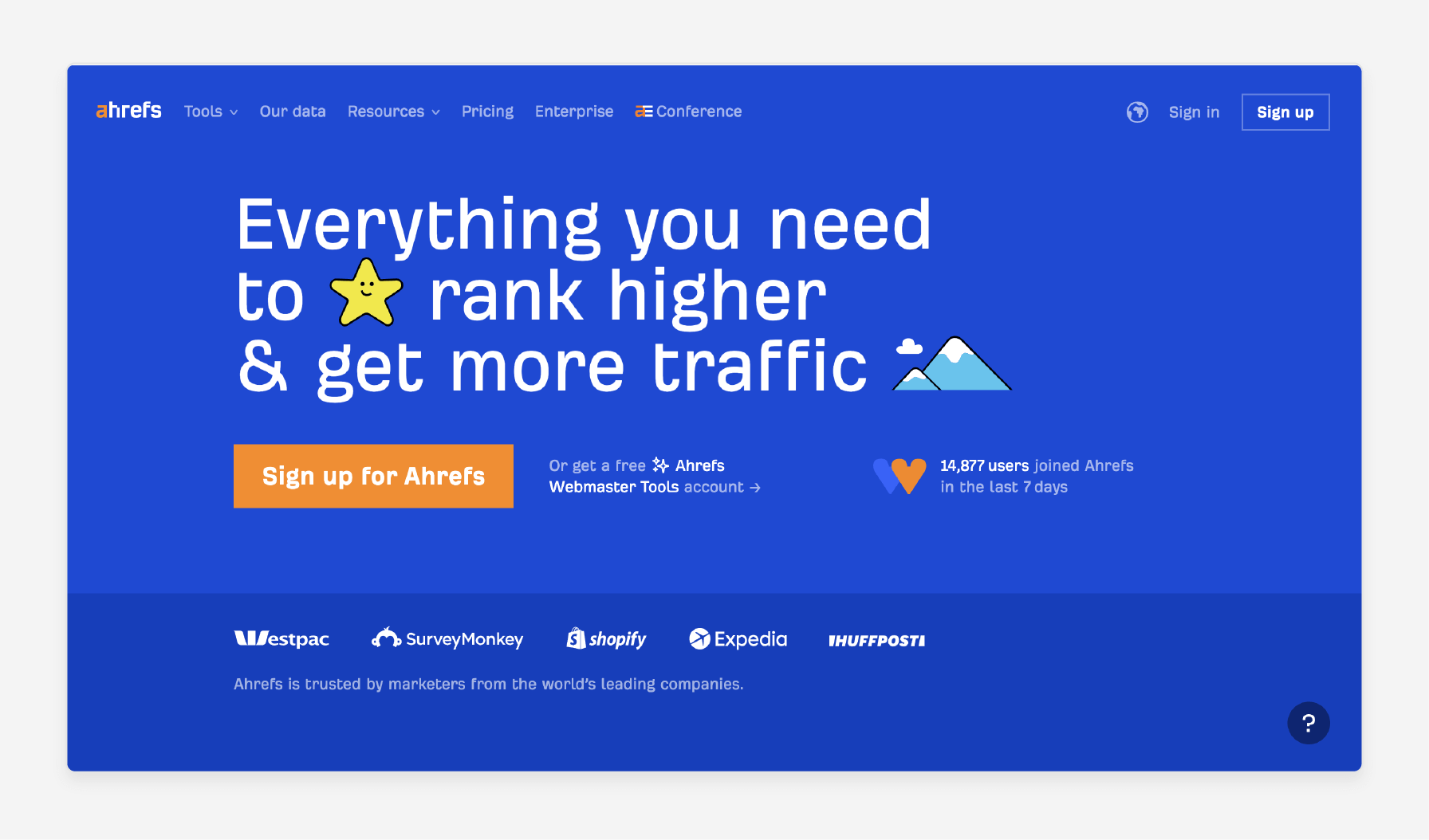
Ahrefs is a powerful SEO tool for link-building & keyword research. It offers SMBs actionable insights into their site's performance. It also helps them study their competitors and find ways to improve SEO.
Key Features
- Link Building: Find backlinks by analyzing who links to your site.
- Keyword Research: Discover top keywords to improve search rankings.
- Site Audit: Get an analysis of SEO mistakes with actionable advice.
- Rank Tracking: Track keyword rankings over time.
- Competitor Analysis: See what competitors do to boost link authority and rankings.
- AI Predictor: Uses ML to forecast link opportunities based on content & industry trends.
Price
- Lite: $99/month
- Standard: $199/month
- Advanced: $399/month
- Enterprise: $999/month
2. SEMrush
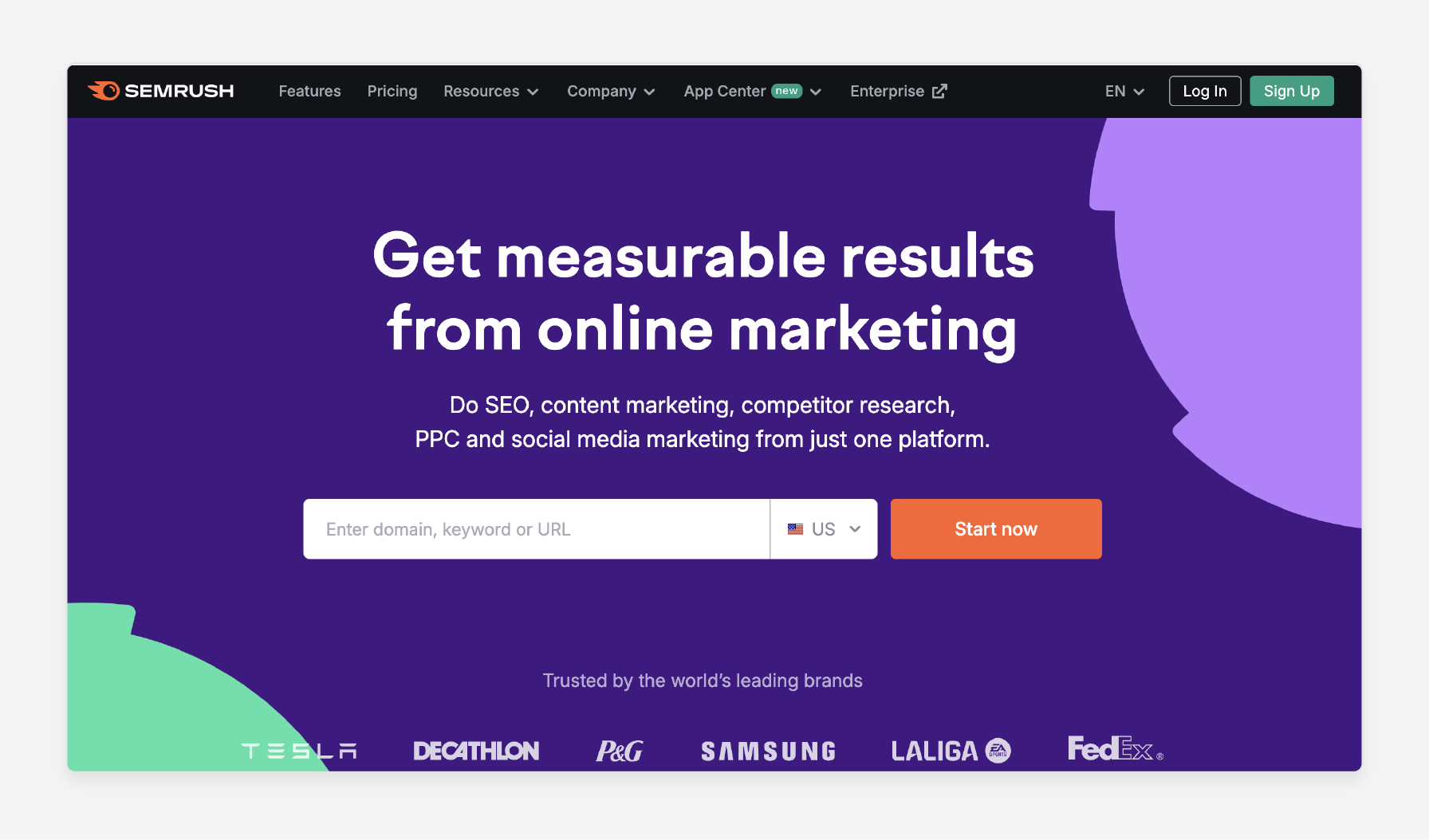
SEMrush is a flexible SEO tool with features for e-commerce and competitive analysis. Its huge database and interface make it popular with marketers.
Key Features
- Keyword Magic Tool: Find thousands of relevant keywords to boost your SEO.
- Site Audit: Identify and fix SEO issues to maintain link authority.
- Backlink Audit: Keep track of your link-building campaign and fix problems.
- Position Tracking: Track daily keyword rankings to stay competitive.
- Predictive Analytics: Forecasts link-building ROI and suggests optimal strategies.
Price
- Pro: $129.95 monthly
- Guru: $249.95 monthly
- Business: $499.95 monthly
3. Moz Pro
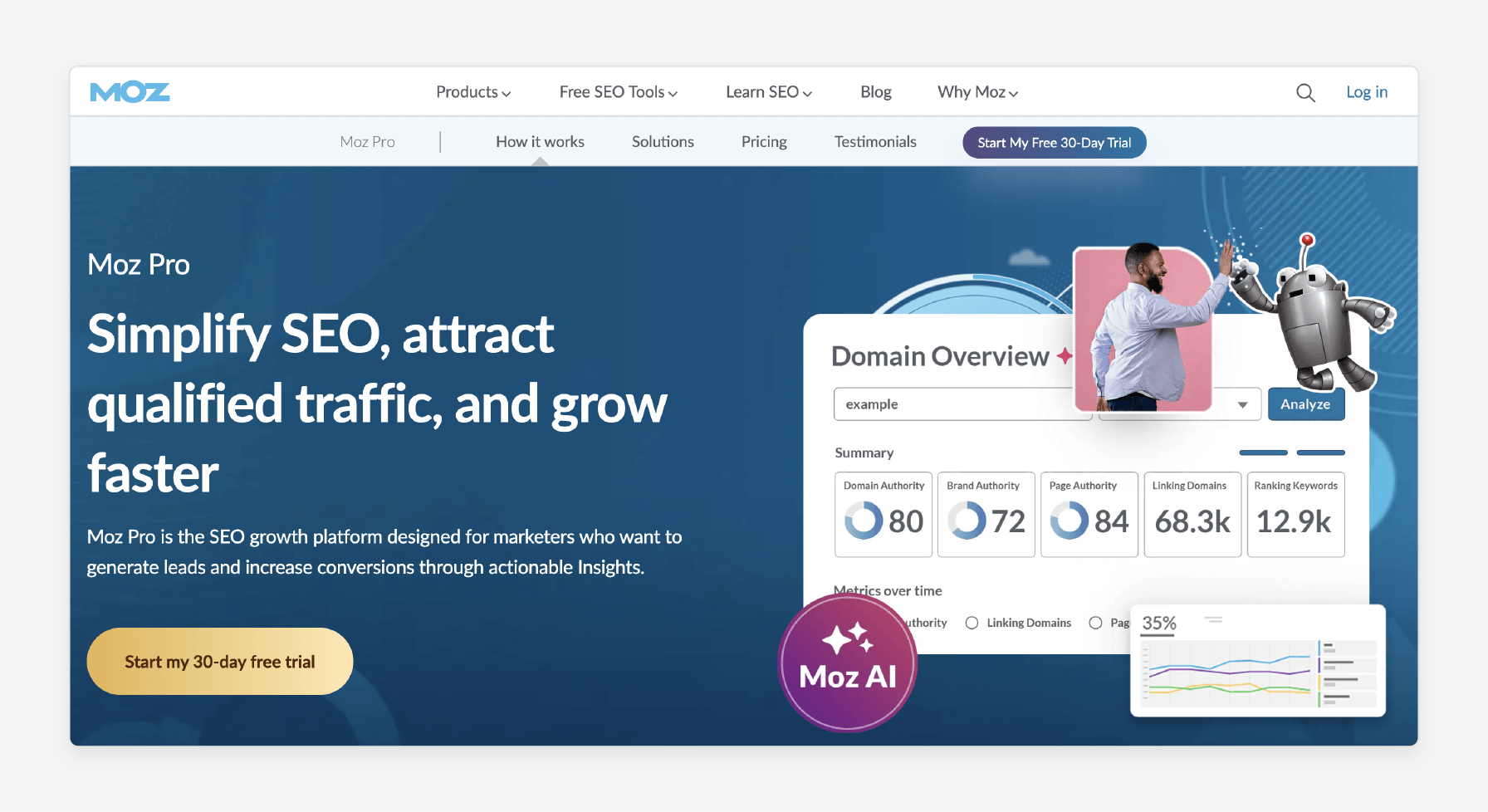
Moz Pro offers tools to help e-commerce businesses build links. These include keyword research, site audits, and more. Its interface makes it a top choice for improving link authority.
Key Features
- Keyword Explorer: Discover and assess the best keywords for your site.
- Link Explorer: Analyze your backlink profile and find new opportunities.
- Site Crawl: Identify and fix SEO issues that affect your link authority.
- Page Optimization: Get recommendations for improving your on-page SEO and link building.
- Brand Entity Recognition: Tracks brand mentions in Google's Knowledge Graph, even without links.
Price
- Standard: $99/month
- Medium: $179/month
- Large: $299/month
- Premium: $599/month
4. Screaming Frog SEO Spider
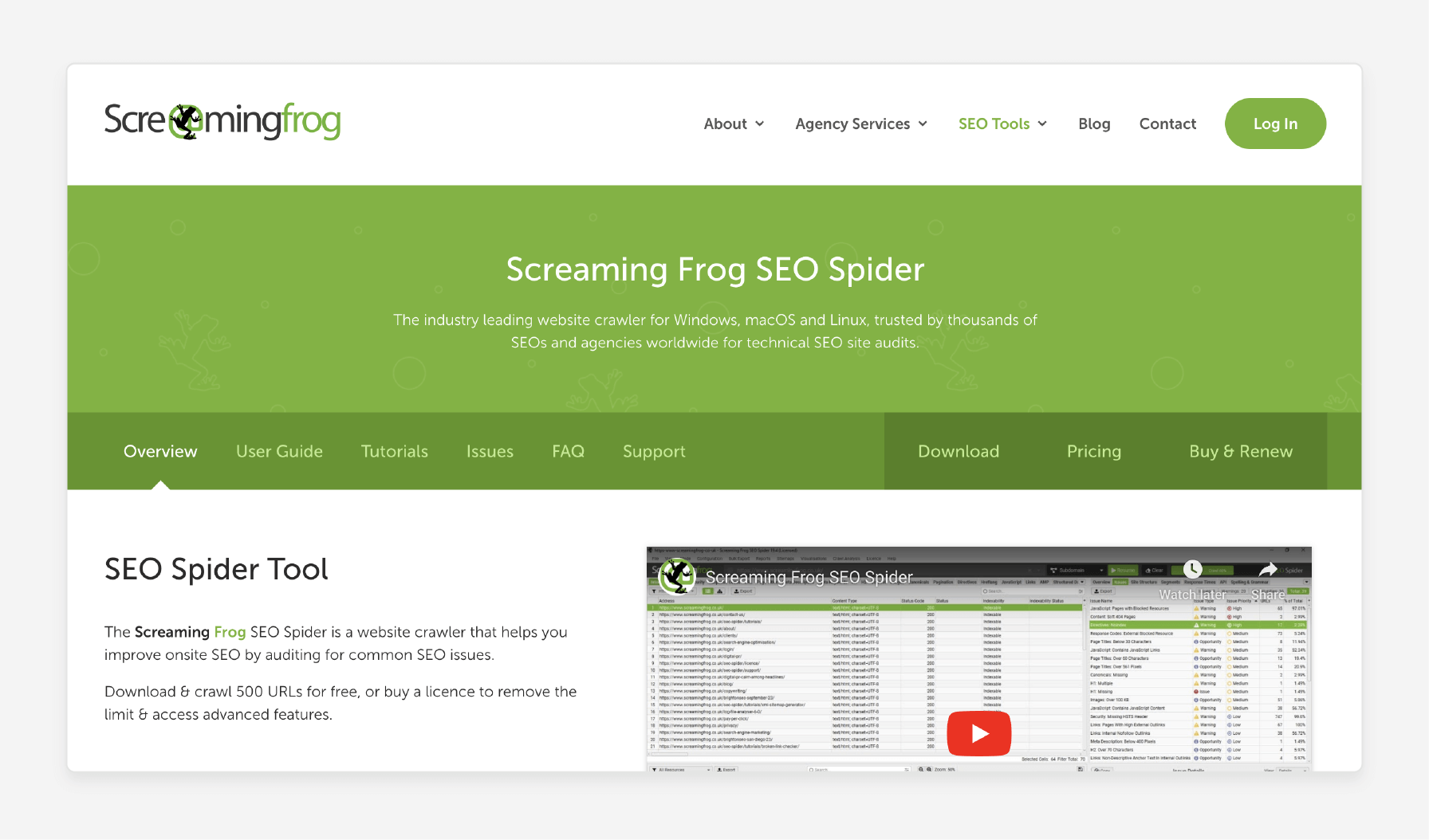
Screaming Frog SEO Spider tool is great for building links on e-commerce sites. It is also helpful for those with product pages. The tool helps maintain link authority by finding errors and technical issues.
Key Features
- Integrated Site Crawling: Find SEO issues like broken links that affect link building.
- Custom Extraction: Extract data that supports your link-building campaigns.
- Google Analytics Integration: Combine crawl data with Google Analytics for better insights.
- XML Sitemap Generation: Index your pages with XML sitemap for link building.
Price
Starts from $259 per year
5. Yoast-SEO
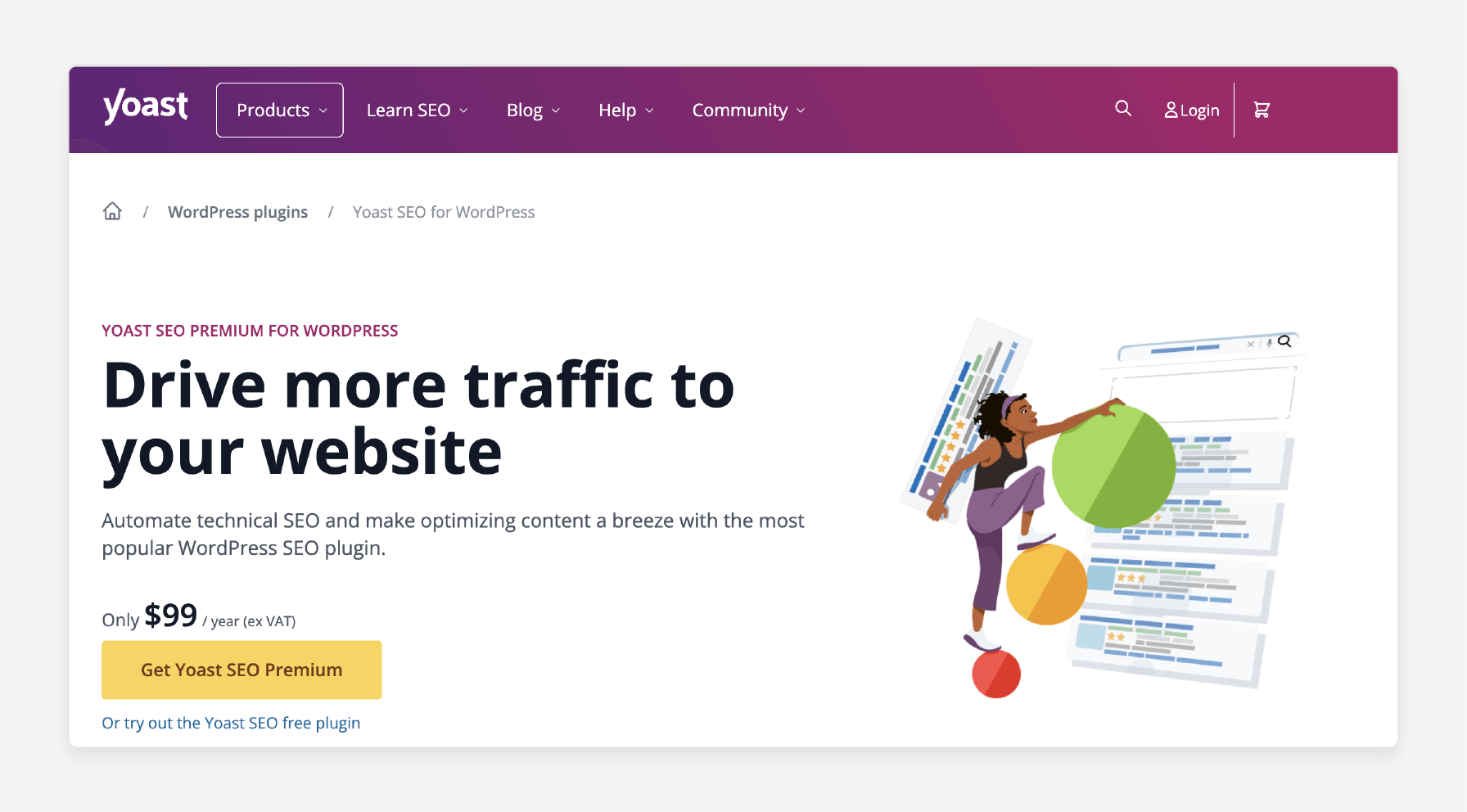
Yoast-SEO is a popular tool for link building on WordPress sites. It provides feedback on the content and ensures key link-building tactics.
Key Features
- Real-Time SEO Analysis: Get instant feedback on your content's SEO.
- Readability Check: Ensure your content is better for link building.
- Social Media Integration: Optimize your content for sharing to attract more backlinks.
Price
Starts from $99 per year
6. Google Search Console
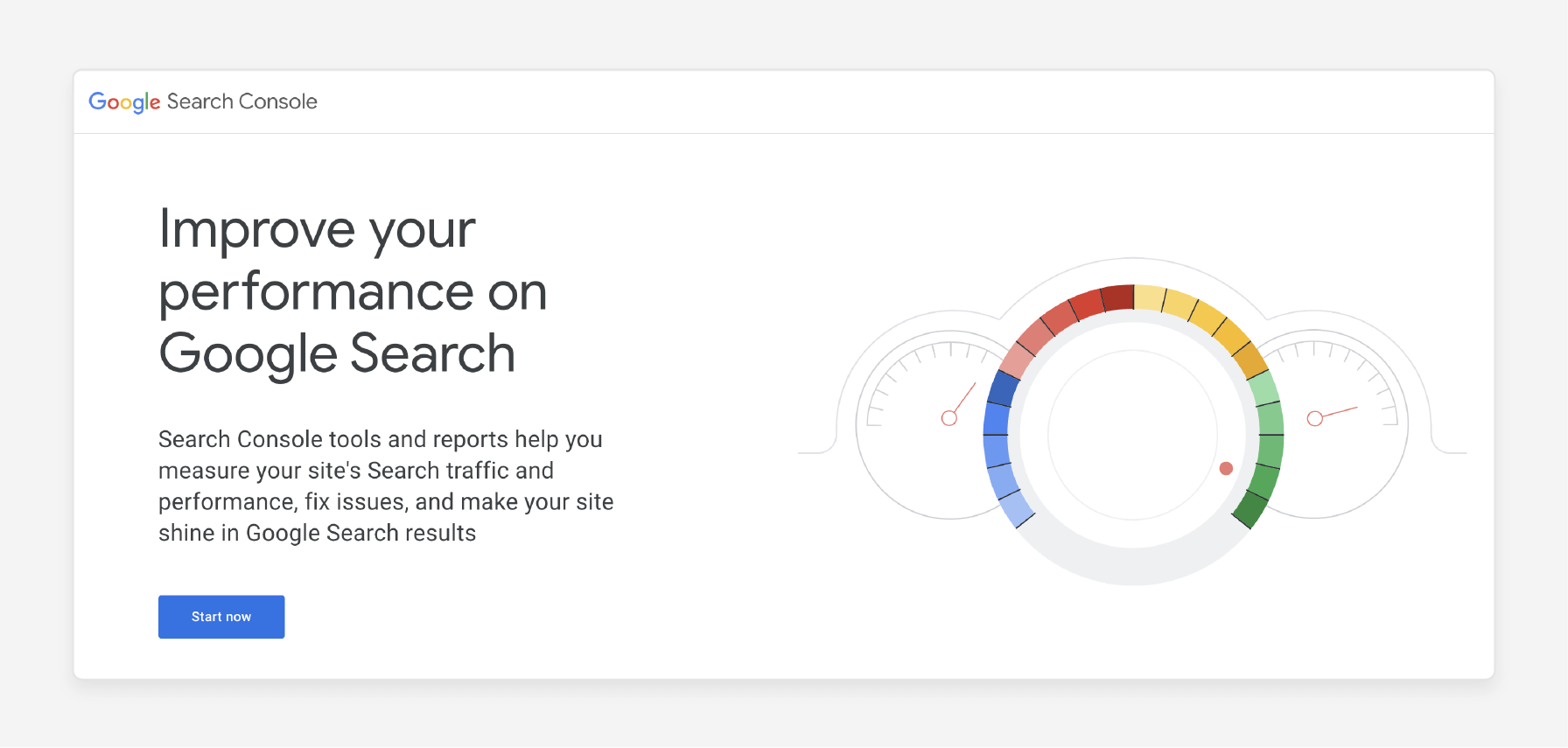
Google Search Console provides insights into a website's performance. This free service tool helps find link-building opportunities and improve SEO performance.
Key Features
- Performance Reports: Analyze your site's performance and link-building techniques.
- Index Coverage: Index all your pages to maintain link authority.
- Mobile Usability: Make sure your site is mobile-usable to attract more backlinks.
- URL Inspection: Get detailed reports on specific URLs for link-building campaigns.
- Security Issues: Track and fix security problems to protect your site's link authority.
7. AgencyAnalytics
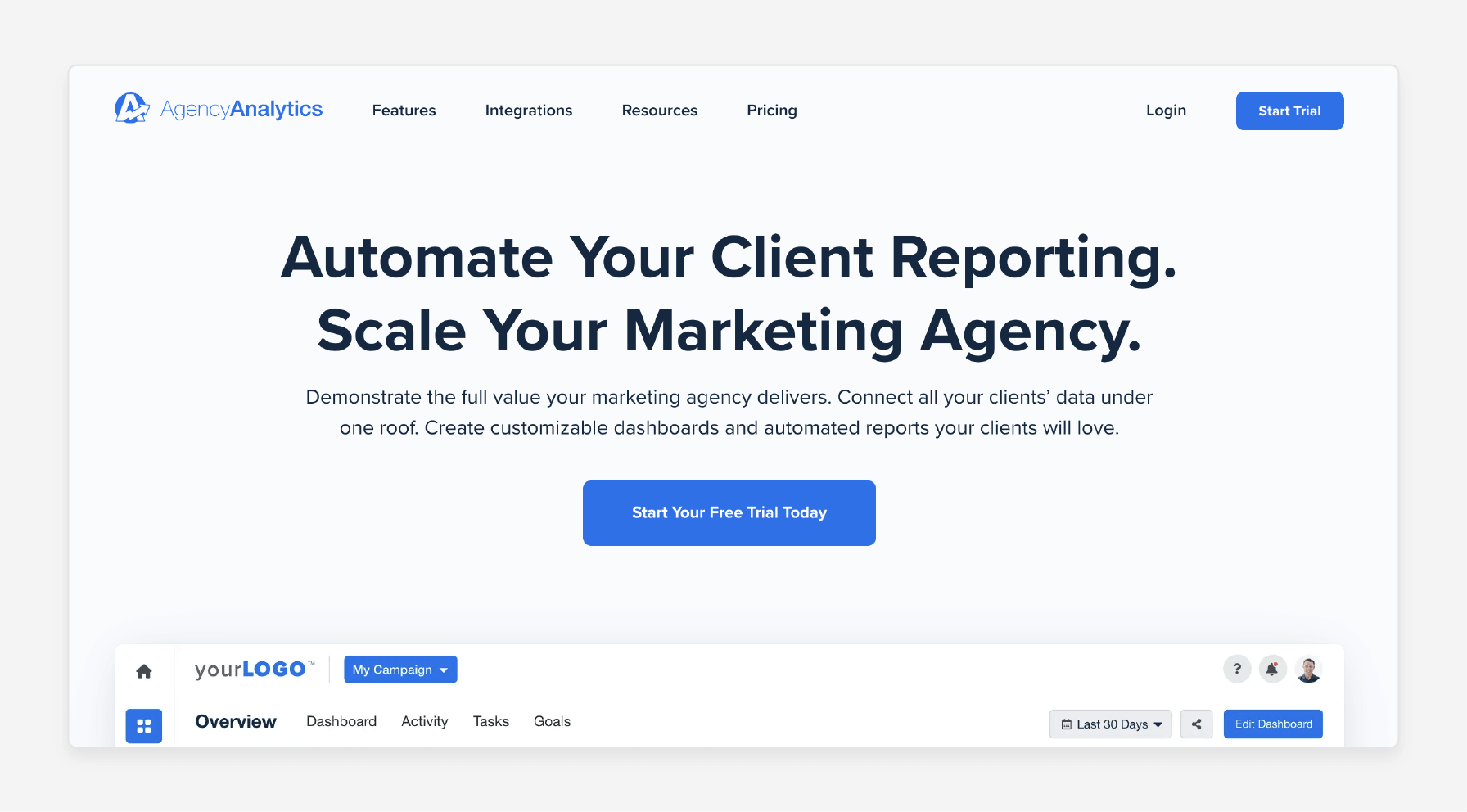
AgencyAnalytics offers tools to manage link building for e-commerce. These include backlink monitoring, keyword tracking, and site audits. This organization is a top choice for agencies needing effective link-building tactics.
Key Features
- Backlink Tracking: Track backlink campaigns and link-building processes.
- Automated Reporting: Generate reports on link building, meta-keyword rankings, and SEO performance.
- Client Dashboards: Provide clients with real-time data on their link authority.
- AI-powered Competitor Benchmarking: Compares your link profile to competitors and suggests improvements.
Price
- Freelancer: $120/month
- Agency: $250/month
- Enterprise: $500/month
8. Hunter
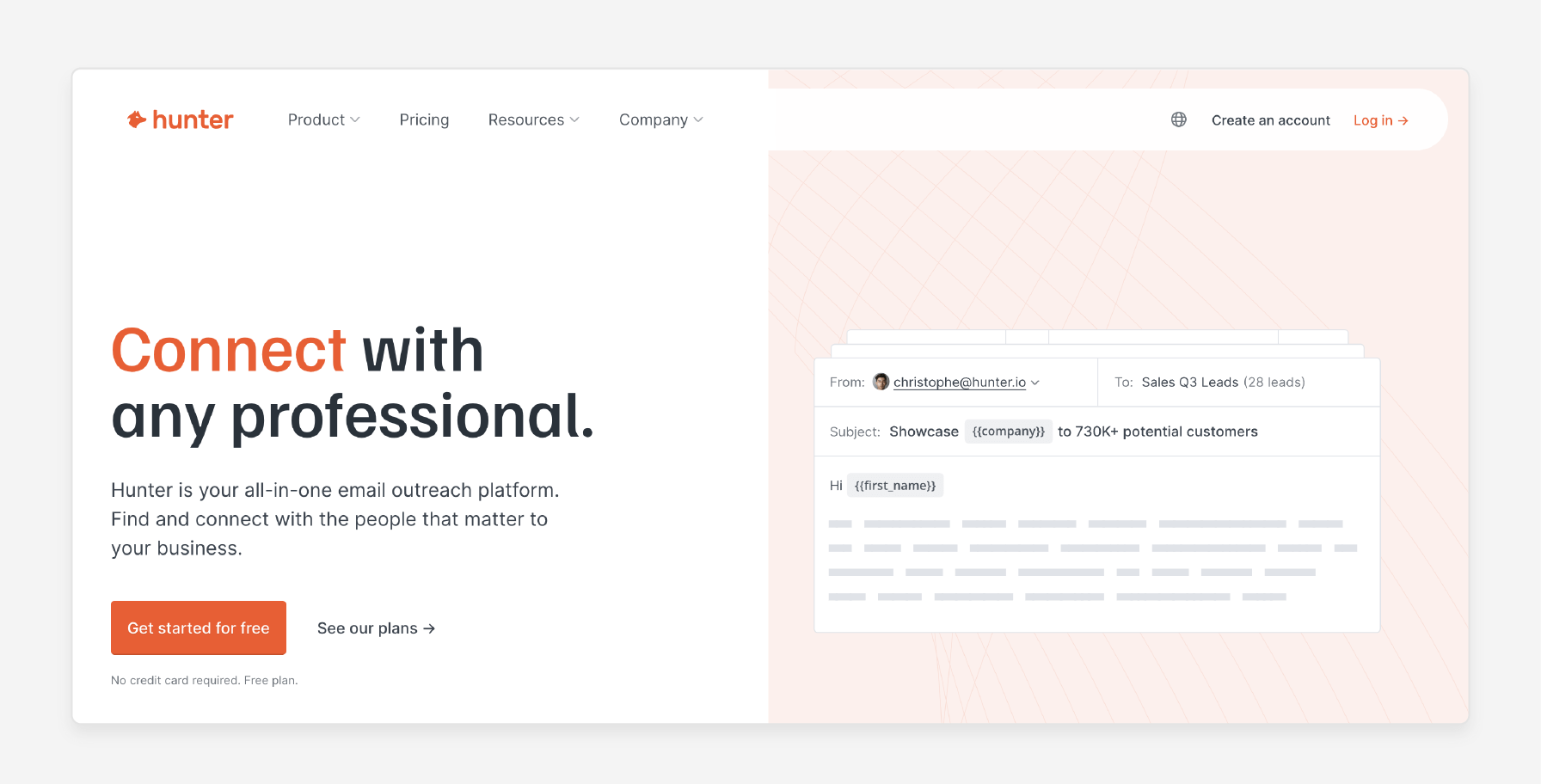
Hunter is perfect for finding contacts for link-building campaigns. It helps build relationships with site owners to secure links for your business.
Key Features
- Email Finder: Identify the right contacts for link-building campaigns.
- Email Verifier: Ensure email addresses are correct for better link-building results.
- Bulk Email Search: Extract various emails at once to simplify ecommerce links.
- AI Pitch Assistant: Generates personal outreach templates based on recipient profiles.
Price
- Starter: $49/month
- Growth: $149/month
- Business: $499/month
9. Google Alerts

Google Alerts tracks mentions of specific keywords, topics, or competitors. The free service tool is useful for monitoring link building and brand mentions.
Key Features
- Keyword Tracking: Set up alerts for keywords related to link building.
- Custom Alerts: Set up several alerts for new link-building opportunities.
- Geographical Filtering: Focus on local link building by narrowing alerts to specific areas.
10. HARO (Help A Reporter Out)
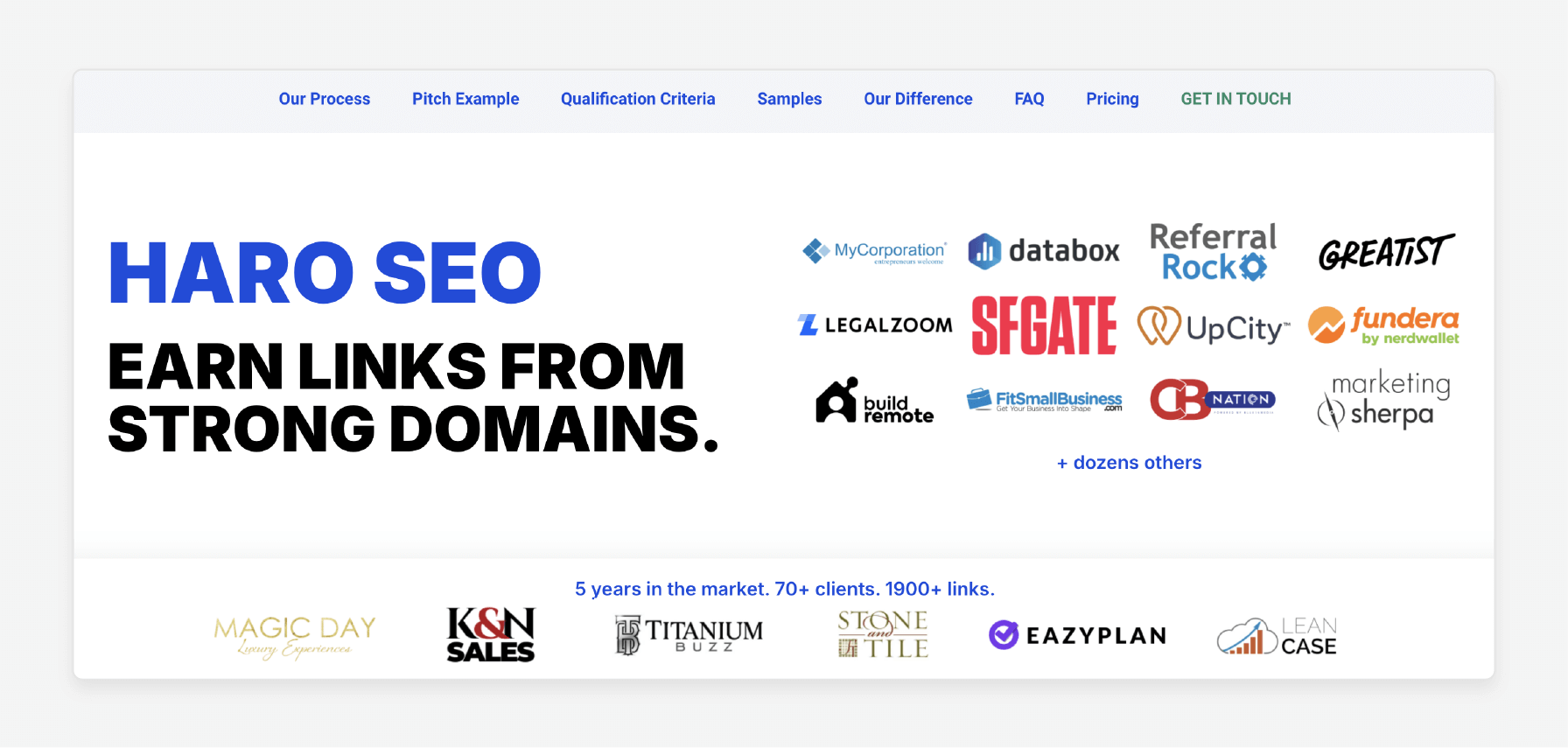
HARO SEO connects businesses with journalists, offering great ecommerce link-building tactics. It helps secure backlinks from high-authority sites.
Key Features
- Source/Journalist Connections: Connect with journalists for ecommerce link-building opportunities.
- Daily Query Emails: Receive requests for expert insights to gain backlinks.
- High-Quality Backlink Opportunities: Earn backlinks from high-authority sites.
- AI Response Matching: Matches your expertise with relevant queries for better response rates.
Price
- 3 qualifying links: $975
- 7 qualifying links: $1,995
11. BrightLocal
BrightLocal is a specialized tool for local SEO link building and geo-specific relevance.
Key Features
- Local Citation Builder: Creates and manages local business listings for improved visibility.
- Local Search Audit: Identifies local link-building opportunities based on your location.
- Competitor Local Link Analysis: Finds where local competitors are getting their backlinks.
Price
- Single Business: $49/month
- Multi-Business: $79/month
- SEO Pro: $149/month
5 Common Mistakes to Avoid in Ecommerce SEO Link Building
| Mistake | Details | Solutions |
|---|---|---|
| Rushing the Process | Link building involves earning valuable backlinks over time. Effective ecommerce link building requires patience, as rushing leads to low-quality links. | Focus on long-term strategies like creating high-quality content & building relationships. |
| Using Poor Anchor Text | Weak or over-optimized anchor text gets poor results for SEO marketing. Use natural anchor text, like "run an ecommerce website", instead of keyword-stuffed phrases. | Use descriptive, natural anchor text that aligns with user intent & avoids keyword stuffing. |
| Using Low-Quality Link-Building Services | Cheap link-building services assess quantity over quality. Businesses that do not link to trusted sites can harm their SEO. Instead, focus on quality links. | Invest in reputable link-building services or tools that assess quality over quantity. |
| Skipping HARO Link Building | Many businesses skip HARO link building. HARO connects with journalists for high-quality backlinks. It makes it ideal for SaaS and e-commerce link-building strategies. | Sign up for HARO and respond to journalist queries to earn authoritative links. |
| Neglecting EEAT Factors | Google demotes sites without verified author bios or customer trust signals. Ensure all linked content demonstrates "Experience, Expertise, Authoritativeness, and Trust (EEAT)". | Add verified author bios, trust badges, and high-quality content demonstrating EEAT principles. |
FAQs
1. How does ecommerce link building improve your site's ranking?
Link-building techniques let your site build authority by acquiring backlinks from trusted websites. When users link to your content, it signals to search engines that your site is credible. It can improve your rankings, boost ecommerce visibility, & drive more organic traffic.
2. How can an SEO service help with ecommerce link building?
Ecommerce SEO service provides expertise in identifying the best link-building techniques. They ensure that you get backlinks from relevant, high-authority sites. This approach can improve search rankings & user experience, & boost ecommerce rankings faster.
3. What link-building techniques should I use for ecommerce SEO?
Link-building techniques include guest posting, influencer outreach, AI-driven personal outreach, & digital PR campaigns. You can also create valuable content that attracts links. These methods encourage people to link to your site. Avoid using sites that do not link to related content. Consider irrelevant backlinks that would not help your SEO.
5. How to build e-commerce links without an SEO service?
The SEO service can save you time and help you avoid mistakes. They use proven link-building tactics and have access to networks from reputable sites. It allows people to link to your site faster, boosting ecommerce sales and visibility.
6. How long does it take to see ecommerce SEO link-building results?
Results from ecommerce SEO link building take time. It depends on the quality of your links and the competitiveness of your niche. With effective link-building techniques, results appear in a few months. Focus on quality backlinks to boost your ecommerce site and bring more traffic.
Summary
Ecommerce SEO link building focuses on quality over quantity for linking. Businesses can choose the trusted link-building techniques that align with their industry to:
- Get other websites to link back to your ecommerce site.
- Boost your store's authority and visibility in search results.
- Build trust with search engines and quality links.
- Improve rankings, traffic, and sales with ecommerce link building.
- Focus on AI-driven strategies and digital PR for successful link-building.
- Boost your Ecommerce SEO and link-building with managed hosting.
- Raise an ecommerce site's search engine ranking, traffic, and growth sales.
Consider managed Magento hosting to get ecommerce SEO links & backlinks for your store.
[Updated on April 14, 2025]





